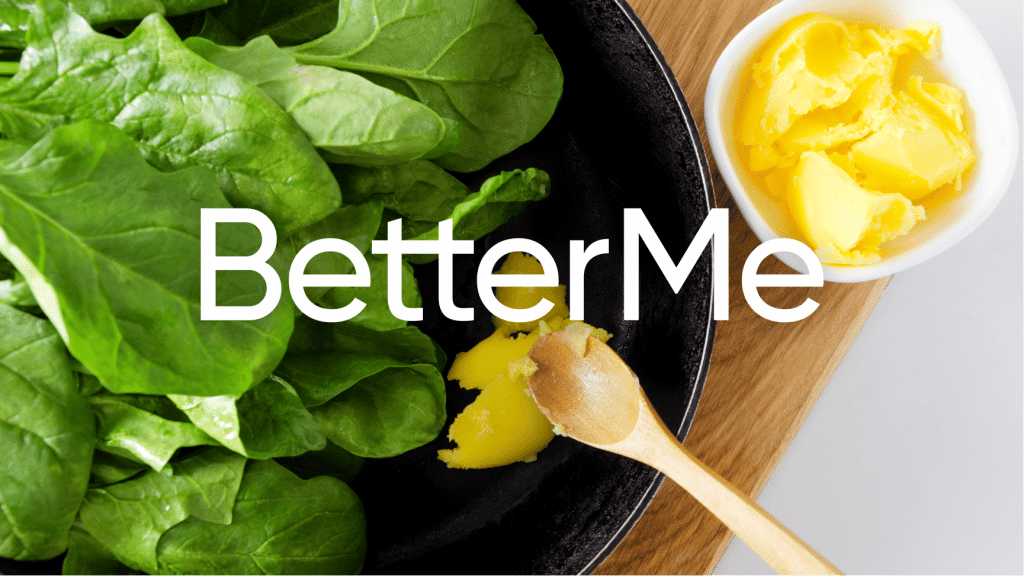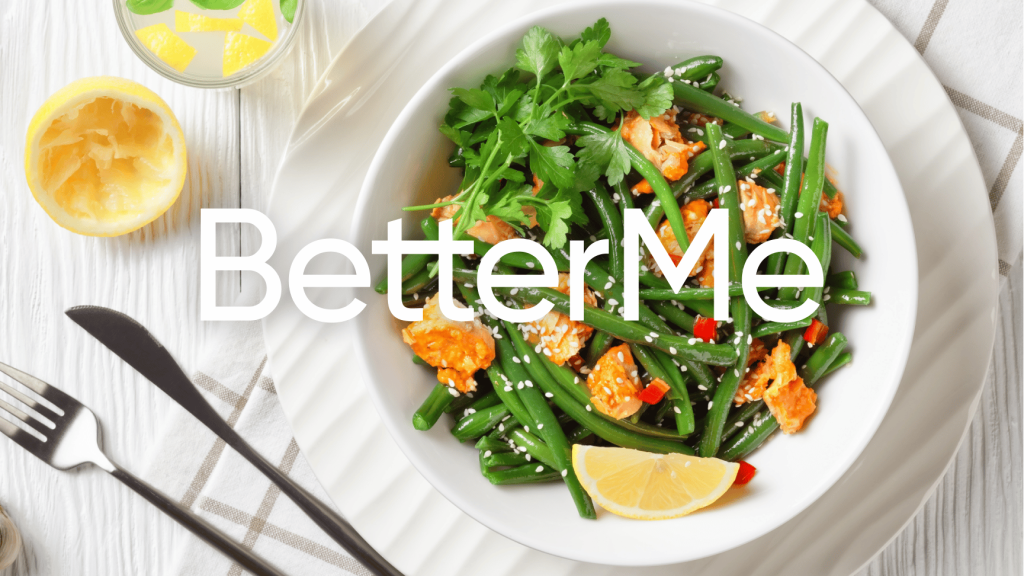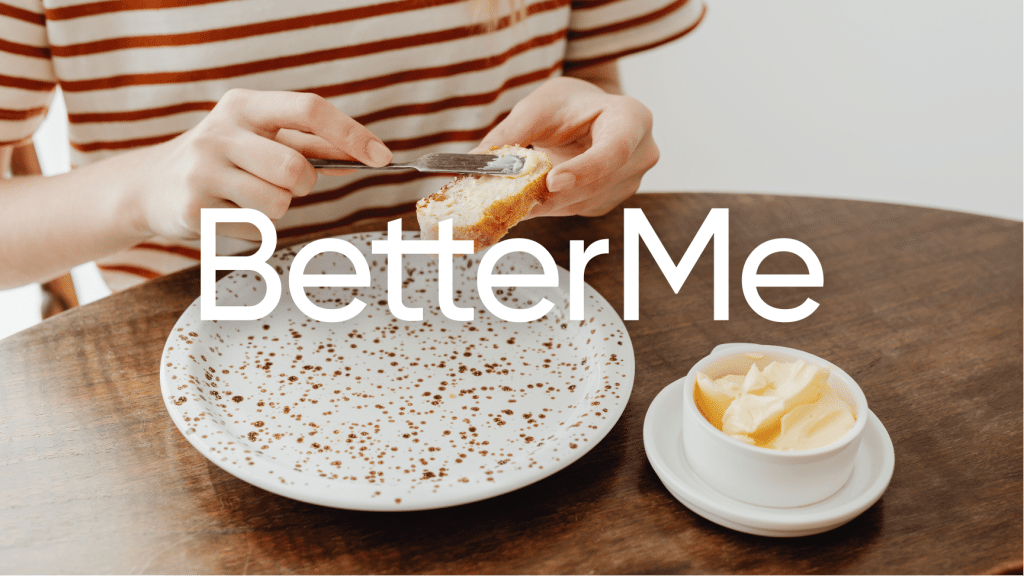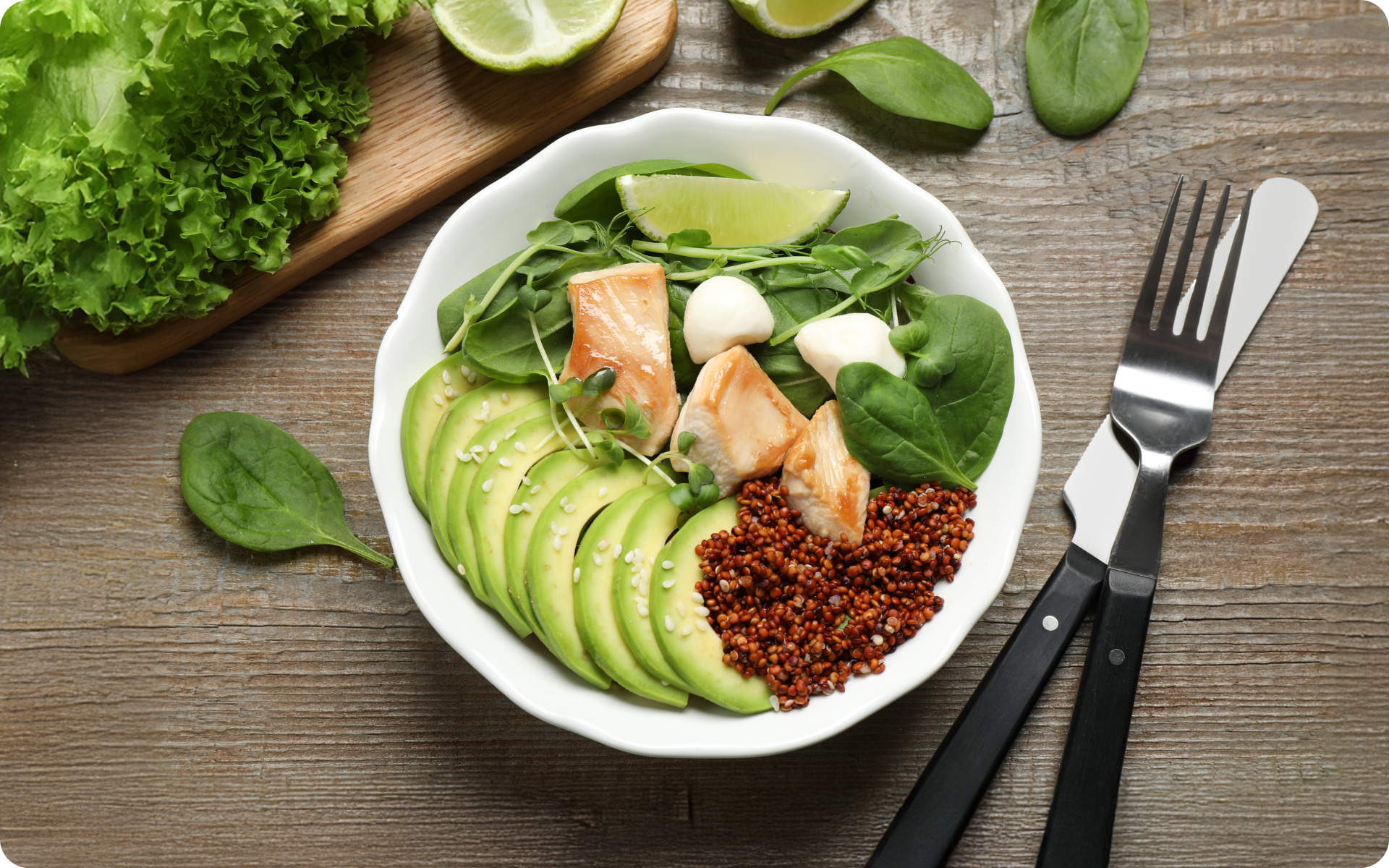The science behind gaining muscle has been studied extensively. According to numerous research studies, not only does your workout regimen play a crucial role, but your diet is also very important in your muscle-building journey (12).
When it comes to packing on pounds of pure, unadulterated muscle, diet may be the single most critical part of your overall bodybuilding program. You can workout all you want, but if your diet doesn’t provide what you need, you’ll never see the results you crave.
This blog post will provide an in-depth guide on the essential aspects of creating and following a meal plan designed for muscle gain. From understanding the importance of protein, carbohydrates, and fats, to learning about meal timing and portion control, we will cover all the bases, providing you with the knowledge you need to kickstart your muscle building diet.
How To Gain Muscle Fast?
Gaining muscle fast is a goal many fitness enthusiasts aim for, but it’s important to understand the science behind it. Muscle growth, scientifically known as hypertrophy, involves a complex series of biological processes (8).
Here’s a quick rundown:
1. Protein Synthesis
When you exercise, your body breaks down muscle protein structures. This process is called muscle protein breakdown (MPB). To rebuild and grow your muscles, your body must produce new muscle proteins at a rate that’s faster than the breakdown. This is called muscle protein synthesis (MPS) (8).
2. Overload Principle
Your muscles grow when they’re forced to adapt to a workload they’re not used to. This is where the concept of progressive overload comes in.
By gradually increasing the weight, volume, or intensity of your workout over time, you challenge your muscles continually and force them to grow (11).
3. Nutrition
Consuming enough protein and overall calories is critical for muscle growth. Protein provides the building blocks (amino acids) for new muscle tissue, while carbohydrates and fats provide the energy needed for this building process (16).
4. Rest and Recovery
Your muscles need time to repair and grow after a workout. Getting adequate sleep and rest days can significantly influence muscle recovery and growth (13).
5. Hormones
Hormones like testosterone, growth hormone, and insulin-like growth factor play crucial roles in regulating muscle growth (5).
Remember, while understanding the science is important, practical application and consistency are key. A well-structured training program, balanced nutrition, sufficient rest, and patience will yield the best results.
What To Eat More To Gain Muscle?
The science of nutrition for muscle building is deeply rooted in the understanding of the roles of specific nutrients in the body. Here’s how they contribute to muscle growth:
Protein
Protein is the primary building block for muscles. It is made up of amino acids, which are used by the body for various functions, including repairing and building muscle tissue (10).
According to research, consuming high-quality protein in your diet can promote muscle protein synthesis (MPS), the process your body uses to build new muscle tissue. For optimal muscle growth, aim to consume a source of protein at each meal (9).
Not all proteins are created equal when it comes to muscle building, so it’s important to make sure you’re consuming the best sources. Lean proteins like beef, fish, poultry and eggs are great choices for muscle gain. You can also include a variety of plant-based protein sources like nuts, seeds, legumes, and soy products if you are vegetarian or vegan or simply for some variation in your diet.
Carbohydrates
Carbohydrates are the body’s preferred energy source. When you consume carbs, your body breaks them down into glucose, which fuels your muscles during workouts.
After exercising, carbs replenish glycogen stores in your muscles, promoting recovery and preparation for the next workout (14).
Choosing which carb sources to eat for muscle gain can be tricky. Limit refined, ultra processed carbs like white bread, sugary cereals, and candy bars as these are more likely to lead to weight gain than muscle growth.
Instead, opt for complex carbohydrates such as sweet potatoes, oatmeal, quinoa, brown rice, whole wheat products and fruits which digest more slowly and provide a steady source of energy throughout the day.
Read More: 7 Low-Fat, High-Protein Snacks to Keep You Full and Focused
Fats
Fats are essential for muscle growth, as they help with hormone production and nutrient absorption. Some hormones, such as testosterone, play a crucial role in muscle growth (15).
Furthermore, fats provide a dense source of calories, which can be beneficial if you need to consume a high amount of calories to support muscle growth.
Healthy fats like monounsaturated and polyunsaturated fats from sources such as avocados, olive oil, nuts, seeds and fatty fish provide the building blocks necessary for muscle repair and growth.
Vitamins and Minerals
Nutrients like iron, magnesium, and potassium are key for muscle growth and performance. They support various bodily functions, such as oxygen transport, muscle contraction, energy metabolism, and protein synthesis (2).
Some of the most important vitamins and minerals for muscle growth include calcium, zinc, iron, vitamin B12, and magnesium (17). These can be obtained from a variety of sources such as dark leafy greens (calcium), shellfish (zinc), meat (iron), dairy products (vitamin B12) and nuts/seeds (magnesium).
Yanking yourself back in shape has never been so easy with our game-changing fitness app! Start transforming your life with BetterMe!
Top 10 Bodybuilding Foods List
Here’s a list of top 10 foods commonly recommended for bodybuilding and muscle growth:
- Chicken Breast: Loaded with lean protein, boneless skinless chicken breast is nearly fat-free and helps to build muscle mass and strength.
- Eggs: Eggs are rich in high-quality protein, healthy fats and other important nutrients like B vitamins and choline. They are a bodybuilding staple due to their protein and amino acid content.
- Lean Beef: Lean cuts of beef are loaded with protein and also provide essential nutrients like iron, zinc and B vitamins, necessary for muscle growth and maintenance.
- Greek Yogurt: Containing double the amount of protein compared to regular yogurt, Greek yogurt is also an excellent source of calcium and probiotics.
- Fish: Fatty fish like salmon and tuna are high in protein, omega-3 fatty acids and vitamin D, all beneficial for muscle health and recovery.
- Quinoa: A great source of plant-based protein and complex carbs, quinoa provides all nine essential amino acids your body needs for growth and repair.
- Brown Rice: While it offers less protein than other items on this list, brown rice provides wholesome carbs that can fuel your workouts and support recovery.
- Sweet Potatoes: These tubers offer complex carbohydrates, fiber and micronutrients that are essential for energy production during workouts.
- Cottage Cheese: Not only does cottage cheese have a lot of protein, it also contains a good amount of casein, a slow-digesting dairy protein that provides your muscles with a steady supply of essential amino acids.
- Protein Powders: While real food should always be the first choice, protein powders can be a convenient and easy way to increase protein intake. Whey protein, in particular, is absorbed quickly by the body making it a great post-workout option.
What Is The Best Meal Plan To Gain Muscle?
The best meal plan to gain muscle largely depends on your individual needs, including your current body composition, workout regimen, and personal preferences. However, a high-protein diet with a balanced amount of carbohydrates and fats is generally recommended for muscle growth.
Here’s a sample 7-day meal plan for muscle gain:
Day 1
- Breakfast: Overnight oats with blueberries, strawberries, and Greek yogurt.
- Snack: Jerky and mixed nuts with an orange.
- Lunch: Grilled tilapia with a side of steamed vegetables.
- Dinner: Chicken breast with a mixed salad and whole avocado.
Day 2
- Breakfast: Protein pancakes with fresh berries.
- Snack: Apple with a whey protein shake.
- Lunch: Grilled chicken salad with vinaigrette.
- Dinner: Sea salt and pepper flank steak with a baked potato and steamed vegetables.
Day 3
- Breakfast: Scrambled eggs with stir-fried veggies and oatmeal.
- Snack: Greek yogurt with mixed berries and a handful of almonds.
- Lunch: Tuna salad wrap.
- Dinner: Grilled salmon, steamed broccoli and cauliflower, sweet potato.
Day 4
Repeat Day 1
Day 5
Repeat Day 2
Day 6
Repeat Day 3
Day 7
Free day – this can be a chance to have a meal out, or cook something different at home.
3100 Calorie Meal Plan for Gaining Muscle
Here’s a detailed 7-day meal plan where each day totals approximately 3100 calories:
Day 1
- Breakfast: 2 whole eggs, 2 egg whites, 2 slices of whole grain toast, 1 avocado, 1 cup Greek yogurt with mixed berries and honey
- Snack: Protein shake with banana, handful of almonds
- Lunch: 6 oz grilled chicken, 1 cup cooked quinoa, 1 cup steamed vegetables, 1 slice whole grain bread with 1 tbsp peanut butter
- Snack: Tuna salad sandwich on whole grain bread, 1 apple
- Dinner: 6 oz grilled salmon, 1 large baked sweet potato, 1 cup roasted Brussels sprouts
- Evening Snack: 1 cup cottage cheese with sliced peaches
Day 2
- Breakfast: Protein pancakes with fresh berries, 1 boiled egg, 1 cup of orange juice
- Snack: 1 cup Greek yogurt with granola and honey
- Lunch: Turkey wrap with whole grain tortilla, lettuce, tomatoes, onions, and cheese, side of mixed fruit
- Snack: Handful of mixed nuts, protein shake
- Dinner: 6 oz steak, 1 cup mashed potatoes, 1 cup steamed broccoli
- Evening Snack: 1 cup cottage cheese with sliced strawberries
Day 3
- Breakfast: Scrambled eggs with spinach and cheese, 2 slices of whole grain toast, 1 banana
- Snack: Protein shake, handful of almonds
- Lunch: Chicken salad with mixed greens, tomatoes, cucumbers, olives, feta cheese, olive oil and vinegar dressing
- Snack: Tuna salad sandwich on whole grain bread, 1 apple
- Dinner: 6 oz grilled salmon, 1 cup brown rice, 1 cup roasted asparagus
- Evening Snack: 1 cup Greek yogurt with mixed berries
Day 4
Repeat Day 1
Day 5
Repeat Day 2
Day 6
Repeat Day 3
Day 7
- Breakfast: Oatmeal with milk, mixed berries, honey, and a scoop of protein powder, 1 boiled egg
- Snack: 1 cup Greek yogurt with granola and honey
- Lunch: Turkey and cheese sandwich on whole grain bread, side of baby carrots and hummus
- Snack: Handful of mixed nuts, protein shake
- Dinner: 6 oz grilled chicken, 1 cup quinoa, 1 cup steamed green beans
- Evening Snack: 1 cup cottage cheese with sliced peaches
Read More: What Are The Best Foods To Gain Muscle?
Is Muscle Gaining Meal Plan Male The Same As Muscle Gaining Meal Plan Female?
While the basic principles of muscle gain involving consuming more calories than you burn and getting ample protein are the same for both men and women, there can be some differences in the specific meal plans due to differences in body composition, metabolism, and nutrient needs.
Men typically have greater muscle mass and a higher metabolic rate compared to women, so they may require more calories and protein. Testosterone, which is higher in men, also aids in muscle building, which is why men might build muscle faster than women (1).
Women, on the other hand, often need fewer calories due to having lower energy needs. However, they still require a high protein intake for muscle building, but this may be slightly lower than the amount needed by men.
So, while the types of foods in a muscle gaining meal plan for males and females may be similar (lean proteins, complex carbs, healthy fats), the portion sizes and total caloric intake often differs.
However, it’s important to remember that everyone is unique and these are general guidelines. Individual needs may vary based on factors such as age, weight, height, activity level, and specific fitness goals.
If you wish to free yourself from all the extra pounds that have been weighting you down for way too long, start using the BetterMe app and overhaul your entire life!
How Many Meals a Day To Build Muscle?
The number of meals recommended per day for muscle building can vary based on different sources and individual needs.
Some experts suggest eating a minimum of 6 meals daily at a frequency of one meal every 3-4 hours, while others propose that consuming as few as 1-3 meals per day could also be effective.
A common approach is consuming 4-6 smaller meals throughout the day, which might help maintain steady energy levels and provide a consistent supply of nutrients to the muscles.
However, it’s worth noting that recent research suggests meal frequency doesn’t significantly affect metabolic rate or the amount of weight you lose (3). The key to muscle gain is total daily protein and calorie intake and strength training, so do what works for you.
Are 4 Meals Enough To Build Muscle?
Yes, eating four meals a day can be enough to build muscle as long as those meals provide sufficient calories, protein, and other nutrients needed for muscle growth.
Muscle building is not just about the number of meals but moreso about their nutritional content and timing. It’s crucial to have a balanced diet rich in protein (the building blocks of muscle), carbohydrates (your body’s main energy source), and healthy fats (for energy and essential bodily functions).
Protein should be consumed throughout the day as your body needs a constant supply of amino acids for muscle protein synthesis. Studies suggest consuming 20-40 grams of protein at each meal for optimal muscle growth (7).
Moreover, it’s important to consume enough calories. If you’re not eating enough, your body can end up breaking down muscle for energy instead of building it.
Your four meals can indeed support muscle building, if they provide adequate calories and nutrients, and are spread out strategically throughout the day (e.g., having a protein-rich meal after your workout to aid recovery and muscle growth).
Why Do Bodybuilders Eat 6 Meals a Day?
Bodybuilders often eat 6 meals a day for several reasons:
Sustained Nutrient Supply
Consuming six meals a day can provide a steady supply of nutrients to the muscles, which may be beneficial for muscle repair and growth. This eating pattern helps ensure that the body has the necessary nutrients for muscle protein synthesis throughout the day.
Improved Energy Levels
By eating every few hours, bodybuilders can make sure they have the energy required for intense training sessions.
Appetite Control
Consuming smaller, more frequent meals can help control hunger and prevent overeating (6).
Efficient Protein Utilization
There’s a limit to how much protein the body can use for muscle building at one time. By spreading protein intake throughout the day, bodybuilders can optimize protein utilization for muscle growth
Maintaining Muscle Mass
Regular intake of protein can help prevent the breakdown of muscle tissue, particularly important when bodybuilders are dieting for competitions.
The Bottom Line
Embarking on a muscle-building journey requires not just the right workout, but also the right nutrition.
Our A-Z guide of muscle gaining meal plans for beginners provides comprehensive insights into the types of foods, meal timings, portion sizes, and more to help you fuel your workouts, promote muscle growth, and optimize recovery.
Get your personalized
meal plan!

DISCLAIMER:
This article is intended for general informational purposes only and does not serve to address individual circumstances. It is not a substitute for professional advice or help and should not be relied on for making any kind of decision-making. Any action taken as a direct or indirect result of the information in this article is entirely at your own risk and is your sole responsibility.
BetterMe, its content staff, and its medical advisors accept no responsibility for inaccuracies, errors, misstatements, inconsistencies, or omissions and specifically disclaim any liability, loss or risk, personal, professional or otherwise, which may be incurred as a consequence, directly or indirectly, of the use and/or application of any content.
You should always seek the advice of your physician or other qualified health provider with any questions you may have regarding a medical condition or your specific situation. Never disregard professional medical advice or delay seeking it because of BetterMe content. If you suspect or think you may have a medical emergency, call your doctor.
SOURCES:
- Circulating Testosterone as the Hormonal Basis of Sex Differences in Athletic Performance (2018, academic.oup.com)
- Dietary Supplements and Sports Performance: Minerals (2005, ncbi.nlm.nih.gov)
- Effects of Increased Meal Frequency on Fat Oxidation and Perceived Hunger (2015, ncbi.nlm.nih.gov)
- Effects of Meal Frequency on Metabolic Profiles and Substrate Partitioning in Lean Healthy Males (2012, journals.plos.org)
- Growth Hormone(s), Testosterone, Insulin-Like Growth Factors, and Cortisol: Roles and Integration for Cellular Development and Growth With Exercise (2020, frontiersin.org)
- International Society of Sports Nutrition position stand: meal frequency (2011, ncbi.nlm.nih.gov)
- International Society of Sports Nutrition Position Stand: protein and exercise (2017, ncbi.nlm.nih.gov)
- Molecular Mechanisms of Skeletal Muscle Hypertrophy (2021, ncbi.nlm.nih.gov)
- Nutrition and muscle protein synthesis: a descriptive review (2009, ncbi.nlm.nih.gov)
- Physiology, Proteins (2022, ncbi.nlm.nih.gov)
- Progressive overload without progressing load? The effects of load or repetition progression on muscular adaptations (2022, ncbi.nlm.nih.gov)
- Recent Perspectives Regarding the Role of Dietary Protein for the Promotion of Muscle Hypertrophy with Resistance Exercise Training (2018, mdpi.com)
- Recovery after exercise: what is the current state of play? (2019, sciencedirect.com)
- Regulation of Muscle Glycogen Repletion, Muscle Protein Synthesis and Repair Following Exercise (2004, ncbi.nlm.nih.gov)
- Testosterone physiology in resistance exercise and training: the up-stream regulatory elements (2010, pubmed.ncbi.nlm.nih.gov)
- The Effect of Ingesting Carbohydrate and Proteins on Athletic Performance: A Systematic Review and Meta-Analysis of Randomized Controlled Trials (2020, mdpi.com)
- Vitamins and Minerals for Energy, Fatigue and Cognition: A Narrative Review of the Biochemical and Clinical Evidence (2020, mdpi.com)













